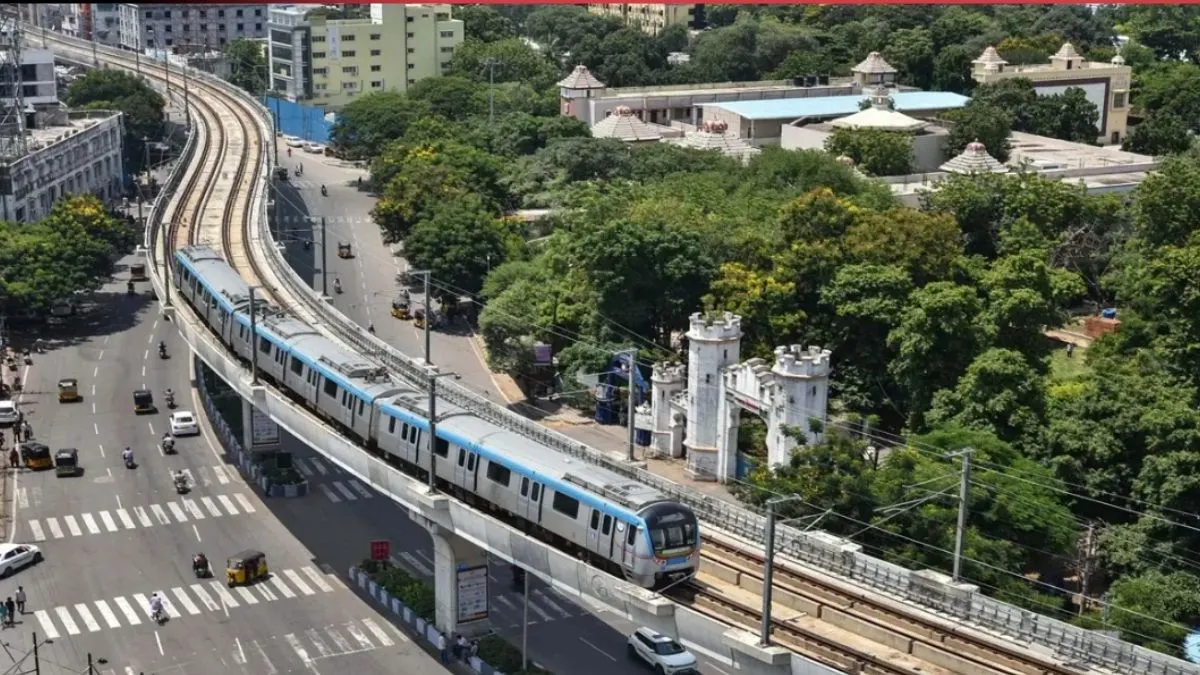- By Sahelee Rakshit
- Wed, 29 Jan 2025 04:55 PM (IST)
- Source:JND
Hyderabad Metro Services Disrupted: Passengers on the Hyderabad Metro Rail experienced a minor inconvenience on Wednesday (January 29) as services were disrupted on the Blue Line (Nagole to Raidurg) due to a technical problem. A technical flaw was discovered in the signalling system. However, the issue was quickly fixed, and normal services have resumed.
Taking to X, the official handle of Hyderabad Metro Rail wrote, "Dear Passengers, earlier today, Hyderabad Metro Rail services encountered a temporary disruption caused by a signalling system technical glitch. We worked promptly to resolve the issue, and normal services have been restored. We regret any inconvenience this may have caused our passengers."
The Hyderabad Metro rail consists mostly of three lines: the blue line between Nagole and Raidurg, the red line between Miyapur to LB Nagar and the green line between JBS parade ground to MG bus station.
Dear Passengers,
— L&T Hyderabad Metro Rail (@ltmhyd) January 29, 2025
Earlier today, Hyderabad Metro Rail services encountered a temporary disruption caused by a signaling system technical glitch. We worked promptly to resolve the issue, and normal services have been restored. We regret any inconvenience this may have caused our…
On November 28, 2017, Prime Minister Narendra Modi flagged off the first metro train, marking the start of its operations. The metro connects to the city's existing railway and bus stations, making travel easier. The overall rail network between the three lines is approximately 69.2 km.
ALSO READ: Bengaluru Namma Metro Update: Centre Asks BMRCL To Hold Fare Hike Amid Employee's Protest
The Metro Rail Project, based on the Mass Rapid Transit System (MRTS), aims to reduce traffic congestion around the city, lower pollution levels, and improve Hyderabad's 'livability index'. The Hyderabad Metro's prominent features include rainwater collection on the site for charging groundwater--the facility recycles around 100,000 literes of water each day.
Furthermore, it is predicted that the Metro rail will remove 10,000 tons of carbon dioxide from the atmosphere. Furthermore, 200 tons of volatile organic compounds from the atmosphere, including 12 tons of particulate matter, are predicted to be eliminated.
